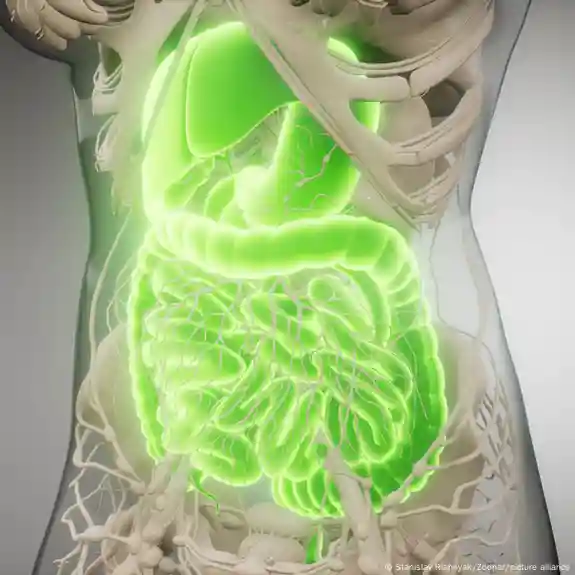"The intestines talk to the brain" .. Discovery of a rapid alert system that regulates appetite

Scientists have discovered a rapid alert system that regulates appetite. When cells in the colon detect proteins produced by bacteria, these cells send signals to the brain to reduce appetite when the body has consumed enough food.
A recent study published on ScienceDaily revealed a special type of intestinal cell called "neuroendocrine cells," which have the ability to recognize proteins produced by bacteria in the intestines. Upon detection, these cells send immediate signals to the brain to inform it that the body has received enough food.
This study was led by neuroscientists Diego Bourque and Maya Kalbeirer from Duke University, and its results were published in the journal Nature. According to the researchers, the intestines can interact directly with the brain, not only to regulate appetite but also to influence mood and behavior.
Scientists have named this new system "gut neurobiological sensing," which allows the brain to interact directly with intestinal signals, bypassing traditional immune or metabolic pathways. Researchers believe that this "gut neurobiological sensing" may help in understanding how the intestines sense bacteria and how these bacteria influence our eating behaviors and mood, as well as how the brain itself affects the bacteria in the intestines.